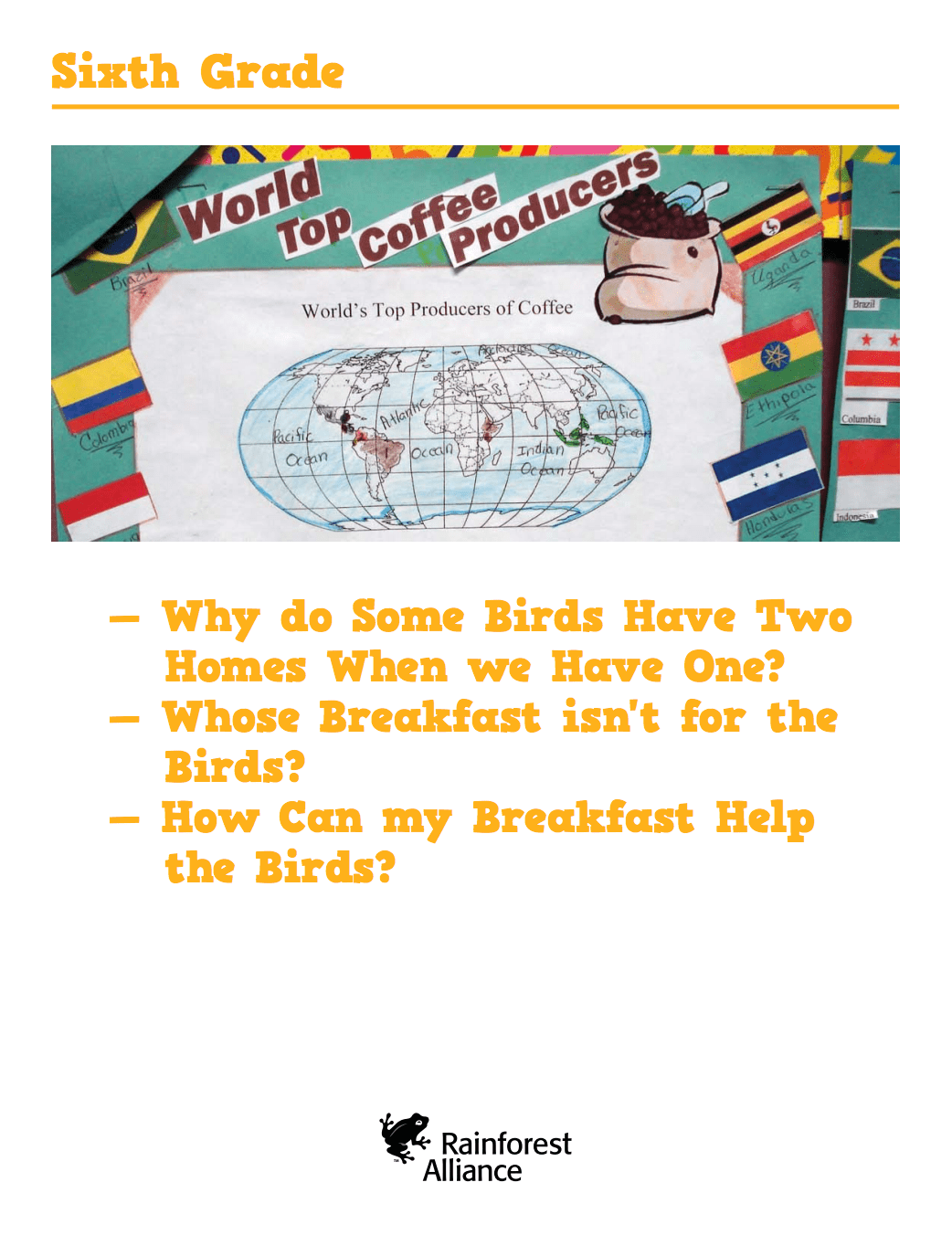Sixth Grade Curriculum: El Salvador
Every year thousands of migratory birds make the long journey from North American forests, parks and backyards to the warm rainforests of Central and South America. Many of these birds will land in trees that shade coffee farms in Central America. Fifth and sixth graders will learn about the important work that SalvaNatura, the Rainforest Alliance's partner group in El Salvador, is carrying out to protect coffee forests and El Imposible, the first national park of El Salvador.
Lessons
Lesson 1: Why Do Some Birds Have Two Homes When We Have One?
Key Concept: Many species of migratory birds have two main homes: a temperate forest and a tropical rainforest. Their survival depends on the health of both forest systems. And the health of both forest systems depends on the survival of migrating birds.
Essential Question: Why do some birds need two homes, thousands of miles apart, when we only need one?
Lesson 2: Whose Breakfast isn't for the Birds?
Key Concept: Coffee plants are grown in the same habitats required by many birds. Rainforests, temperate forests and the landscapes that link them must be carefully managed in order to ensure the survival of migratory birds.
Essential Question: Whose breakfast isn't for the birds?
Lesson 3: How Can My Breakfast Help the Birds?
Key Concept: Our food choices may have an impact on rainforests. Sun-grown coffee farming destroys essential bird habitat in rainforest areas.
Essential Question: How can my breakfast harm the birds?
About Our Curricula
The Rainforest Alliance curricula are unique in that it teaches language arts, math, science, social studies and the arts while addressing the Common Core State Standards (CCSS) for English language arts and mathematics, and the Next Generation Science Standards.
- Learn more about how our curricula adhere to these standards.
- Learn more about the terms and conditions of using our curriculum.
